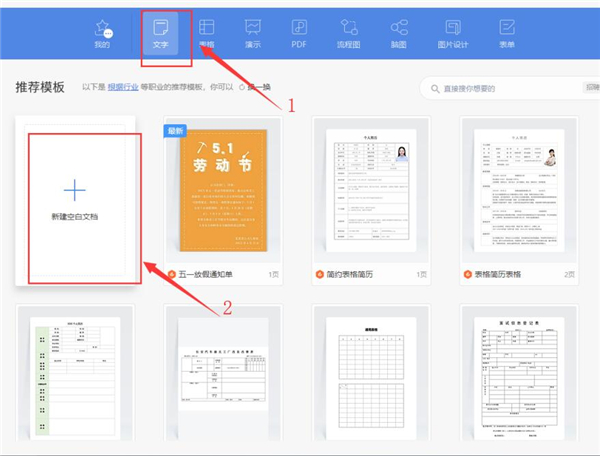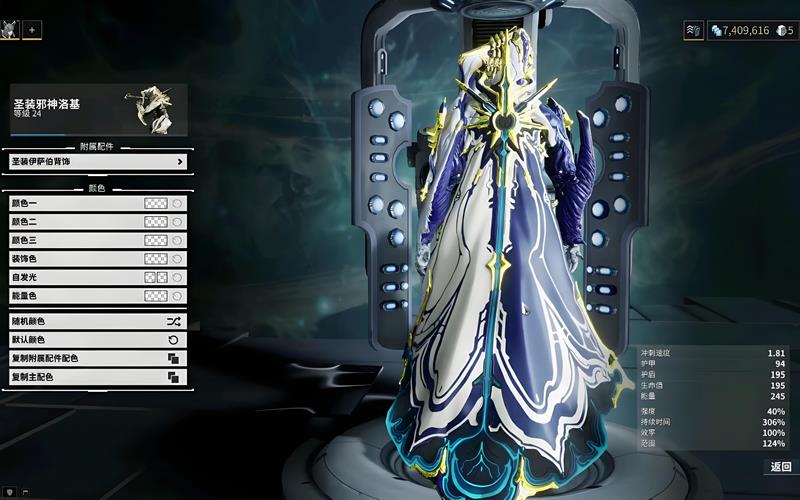请问改写系统调用函数的时候能否嵌套调用别的系统调用?
时间:2010-07-30
来源:互联网
我按照论坛上的方法修改new_open函数的时候,想先在文件之中写点东西,就找到sys_call_table之中write和open函数的指针赋给old_write和old_open。
然后在new_open里面先调用old_open获得fd,然后调用old_write,但是创建文件的时候debug...old_write返回-14,打开文件的时候old_write返回-9。
查询错误列表一个是bad address,一个是Bad file number。
请问各位大大,这代表什么意思?fd是打开文件返回的,参数貌似应该没错啊。
然后在new_open里面先调用old_open获得fd,然后调用old_write,但是创建文件的时候debug...old_write返回-14,打开文件的时候old_write返回-9。
查询错误列表一个是bad address,一个是Bad file number。
请问各位大大,这代表什么意思?fd是打开文件返回的,参数貌似应该没错啊。
作者: cdwzt 发布时间: 2010-07-30
贴 一下你的代码
作者: 0vk0 发布时间: 2010-07-31
本帖最后由 cdwzt 于 2010-07-31 09:57 编辑
回复 0vk0
哦!好的!我是在Godbach 大大发的帖子的基础上改的。主要是open调用里面添加了点内容,但是查看系统日志发现在open里面调用old_write没有写成功,实际上文件也还是原来的大小。
但是lseek返回了正确的值(定义的宏#define PAGE_RESERVED 1000)
复制代码
回复 0vk0
哦!好的!我是在Godbach 大大发的帖子的基础上改的。主要是open调用里面添加了点内容,但是查看系统日志发现在open里面调用old_write没有写成功,实际上文件也还是原来的大小。
但是lseek返回了正确的值(定义的宏#define PAGE_RESERVED 1000)
- #include <linux/kernel.h>
-
- #include <linux/init.h>
-
- #include <linux/module.h>
-
- #include <linux/kprobes.h>
-
- #include <linux/kallsyms.h>
-
- #include <linux/sched.h>
-
- #include <linux/ptrace.h>
-
- #include <linux/mm.h>
-
- #include <linux/smp.h>
-
- #include <linux/user.h>
-
- #include <linux/errno.h>
-
- #include <linux/cpu.h>
- #include <linux/syscalls.h>
- #include <linux/fs.h> /*struct file*/
- #include <linux/file.h> /*fget() fput()*/
- #include <linux/fdtable.h> /*NR_OPEN_DEFAULT*/
- #include <linux/dcache.h> /*d_path()*/
- #include <linux/random.h>
- #include <linux/syscalls.h>
-
- #include <asm/uaccess.h>
-
- #include <asm/fcntl.h>
-
- #include <asm/unistd.h>
-
-
-
- #define PAGE_RESERVED (4*1024)
-
-
-
- MODULE_DESCRIPTION("Intercept the system call table in Linux");
-
- MODULE_AUTHOR("alert7 ([email][email protected][/email]) \n\t\talbcamus <[email][email protected][/email]>");
-
- MODULE_LICENSE("GPL");
-
-
-
-
-
- /* comment the following line to shut me up */
-
- #define INTERCEPT_DEBUG
-
-
-
- #ifdef INTERCEPT_DEBUG
-
- #define dbgprint(format,args...) \
-
- printk("intercept: function:%s-L%d: "format, __FUNCTION__, __LINE__, ##args);
-
- #else
-
- #define dbgprint(format,args...) do {} while(0);
-
- #endif
-
-
-
-
-
- /**
-
- * the system call table
-
- */
-
- void **my_table;
-
-
-
- unsigned int orig_cr0;
-
-
-
- /**
-
- * the original syscall functions
-
- */
-
- asmlinkage long (*old_open) (char __user *filename, int flags, int mode);
-
- asmlinkage int (*old_read) (unsigned int fd, char __user *buf, size_t count);
-
- asmlinkage int (*old_write) (unsigned int fd, char __user *buf, size_t count);
- asmlinkage long (*old_lseek) (unsigned int fd, off_t offset, unsigned int origin);
-
-
-
- struct idtr {
-
- unsigned short limit;
-
- unsigned int base;
-
- } __attribute__ ((packed));
-
-
-
-
-
- struct idt {
-
- unsigned short off1;
-
- unsigned short sel;
-
- unsigned char none, flags;
-
- unsigned short off2;
-
- } __attribute__ ((packed));
-
-
-
-
-
- /**
-
- * clear WP bit of CR0, and return the original value
-
- */
-
- unsigned int clear_and_return_cr0(void)
-
- {
-
- unsigned int cr0 = 0;
-
- unsigned int ret;
-
-
-
- asm volatile ("movl %%cr0, %%eax"
-
- : "=a"(cr0)
-
- );
-
- ret = cr0;
-
-
-
- /* clear the 16 bit of CR0, a.k.a WP bit */
-
- cr0 &= 0xfffeffff;
-
-
-
- asm volatile ("movl %%eax, %%cr0"
-
- :
-
- : "a"(cr0)
-
- );
-
- return ret;
-
- }
-
-
-
- /** set CR0 with new value
-
- *
-
- * @val : new value to set in cr0
-
- */
-
- void setback_cr0(unsigned int val)
-
- {
-
- asm volatile ("movl %%eax, %%cr0"
-
- :
-
- : "a"(val)
-
- );
-
- }
-
-
-
-
-
- /**
-
- * Return the first appearence of NEEDLE in HAYSTACK.
-
- * */
-
- static void *memmem(const void *haystack, size_t haystack_len,
-
- const void *needle, size_t needle_len)
-
- {/*{{{*/
-
- const char *begin;
-
- const char *const last_possible
-
- = (const char *) haystack + haystack_len - needle_len;
-
-
-
- if (needle_len == 0)
-
- /* The first occurrence of the empty string is deemed to occur at
-
- the beginning of the string. */
-
- return (void *) haystack;
-
-
-
- /* Sanity check, otherwise the loop might search through the whole
-
- memory. */
-
- if (__builtin_expect(haystack_len < needle_len, 0))
-
- return NULL;
-
-
-
- for (begin = (const char *) haystack; begin <= last_possible;
-
- ++begin)
-
- if (begin[0] == ((const char *) needle)[0]
-
- && !memcmp((const void *) &begin[1],
-
- (const void *) ((const char *) needle + 1),
-
- needle_len - 1))
-
- return (void *) begin;
-
-
-
- return NULL;
-
- }/*}}}*/
-
-
-
-
-
- /**
-
- * Find the location of sys_call_table
-
- */
-
- static unsigned long get_sys_call_table(void)
-
- {/*{{{*/
-
- /* we'll read first 100 bytes of int $0x80 */
-
- #define OFFSET_SYSCALL 100
-
-
-
- struct idtr idtr;
-
- struct idt idt;
-
- unsigned sys_call_off;
-
- unsigned retval;
-
- char sc_asm[OFFSET_SYSCALL], *p;
-
-
-
- /* well, let's read IDTR */
-
- asm("sidt %0":"=m"(idtr)
-
- :
-
- :"memory" );
-
-
-
- dbgprint("idtr base at 0x%X, limit at 0x%X\n", (unsigned int)idtr.base,(unsigned short)idtr.limit);
-
-
-
- /* Read in IDT for vector 0x80 (syscall) */
-
- memcpy(&idt, (char *) idtr.base + 8 * 0x80, sizeof(idt));
-
-
-
- sys_call_off = (idt.off2 << 16) | idt.off1;
-
-
-
- dbgprint("idt80: flags=%X sel=%X off=%X\n",
-
- (unsigned) idt.flags, (unsigned) idt.sel, sys_call_off);
-
-
-
- /* we have syscall routine address now, look for syscall table
-
- dispatch (indirect call) */
-
- memcpy(sc_asm, (void *)sys_call_off, OFFSET_SYSCALL);
-
-
-
- /**
-
- * Search opcode of `call sys_call_table(,eax,4)'
-
- */
-
- p = (char *) memmem(sc_asm, OFFSET_SYSCALL, "\xff\x14\x85", 3);
-
- if (p == NULL)
-
- return 0;
-
-
-
- retval = *(unsigned *) (p + 3);
-
- if (p) {
-
- dbgprint("sys_call_table at 0x%x, call dispatch at 0x%x\n",
-
- retval, (unsigned int) p);
-
- }
-
- return retval;
-
- #undef OFFSET_SYSCALL
-
- }/*}}}*/
-
-
-
-
-
-
-
- /**
-
- * new_open - replace the original sys_open when initilazing,
-
- * as well as be got rid of when removed
-
- */
-
-
- asmlinkage long new_open(char *filename, int flags, int mode)
-
- {
-
- int i, write_return;
- long fd;
- unsigned char Flag, CNT[8];
- char __user * CNT_user[8];
- fd = old_open (filename, flags, mode);
-
- //printk("open ...fd=%08X\n", fd);
-
- i = 0;
- while(((char*)(filename))[i++]!='\0');
- if(i<=5)
- {
- goto ret;
- }
- i -= 5;
-
- if(0 == (strcmp(&(((char*)(filename))[i]),".txt")))
- {
- printk("Cteate(open) txt files...fd=%08X\n", fd);
- //get_random_bytes(CNT, 8);
- memset(CNT, 0xAA, 8);
- Flag = 1;
- printk("next write flags and counter...");
- old_write(fd, &Flag, 1);
- //copy_to_user(CNT_user, CNT, 8);
- write_return = old_write(fd, CNT, 8);
- printk("write return:%d\n", write_return);
- //i = old_lseek(fd, PAGE_RESERVED, SEEK_SET);
- //printk("lseek return:%x\n", i);
- }
-
-
-
- ret:
-
- return fd;
-
- }
-
-
-
- asmlinkage int new_read(unsigned int fd, char *buf, size_t count)
- {
- return old_read(fd, buf, count);
- }
-
-
-
- asmlinkage int new_write(unsigned int fd, char *buf, size_t count)
- {
- return old_write(fd, buf, count);
- }
-
- asmlinkage long new_lseek(unsigned int fd, off_t offset, unsigned int origin)
- {
- return old_lseek(fd, offset, origin);
- }
-
-
- static int intercept_init(void)
-
- {
-
- my_table = (void **)get_sys_call_table();
-
- if (my_table == NULL)
-
- return -1;
-
-
-
- dbgprint("sys call table address %p\n", (void *) my_table);
-
-
-
- #define REPLACE(x) old_##x = my_table[__NR_##x];\
-
- my_table[__NR_##x] = new_##x
-
-
-
-
-
- REPLACE(open);
- REPLACE(read);
- REPLACE(write);
- REPLACE(lseek);
-
- #if 0
-
- can_exec_fork = can_intercept_fork_exec();
-
- if(can_exec_fork == 1)
-
- REPLACE(execve);
-
- #endif
-
-
-
- #undef REPLACE
-
- return 0;
-
- }
-
-
-
-
-
-
-
-
-
-
-
- static int __init this_init(void)
-
- {
-
- int ret;
-
- printk("syscall intercept: Hi, poor linux!\n");
-
-
-
- orig_cr0 = clear_and_return_cr0();
-
- ret = intercept_init();
-
- setback_cr0(orig_cr0);
-
-
-
- return ret;
-
- }
-
-
-
- static void __exit this_fini(void)
-
- {
-
- printk("syscall intercept: bye, poor linux!\n");
-
-
-
- #define RESTORE(x) my_table[__NR_##x] = old_##x
-
-
-
- orig_cr0 = clear_and_return_cr0();
-
- RESTORE(open);
- RESTORE(read);
- RESTORE(write);
- RESTORE(lseek);
-
- #if 0
-
- if(can_exec_fork == 1)
-
- RESTORE(execve);
-
- #endif
-
- setback_cr0(orig_cr0);
-
-
-
- #undef RESTORE
-
- }
-
-
-
- module_init(this_init);
-
- module_exit(this_fini);
作者: cdwzt 发布时间: 2010-07-31
相关阅读 更多
热门阅读
-
 office 2019专业增强版最新2021版激活秘钥/序列号/激活码推荐 附激活工具
office 2019专业增强版最新2021版激活秘钥/序列号/激活码推荐 附激活工具
阅读:74
-
 如何安装mysql8.0
如何安装mysql8.0
阅读:31
-
 Word快速设置标题样式步骤详解
Word快速设置标题样式步骤详解
阅读:28
-
 20+道必知必会的Vue面试题(附答案解析)
20+道必知必会的Vue面试题(附答案解析)
阅读:37
-
 HTML如何制作表单
HTML如何制作表单
阅读:22
-
 百词斩可以改天数吗?当然可以,4个步骤轻松修改天数!
百词斩可以改天数吗?当然可以,4个步骤轻松修改天数!
阅读:31
-
 ET文件格式和XLS格式文件之间如何转化?
ET文件格式和XLS格式文件之间如何转化?
阅读:24
-
 react和vue的区别及优缺点是什么
react和vue的区别及优缺点是什么
阅读:121
-
 支付宝人脸识别如何关闭?
支付宝人脸识别如何关闭?
阅读:21
-
 腾讯微云怎么修改照片或视频备份路径?
腾讯微云怎么修改照片或视频备份路径?
阅读:28















